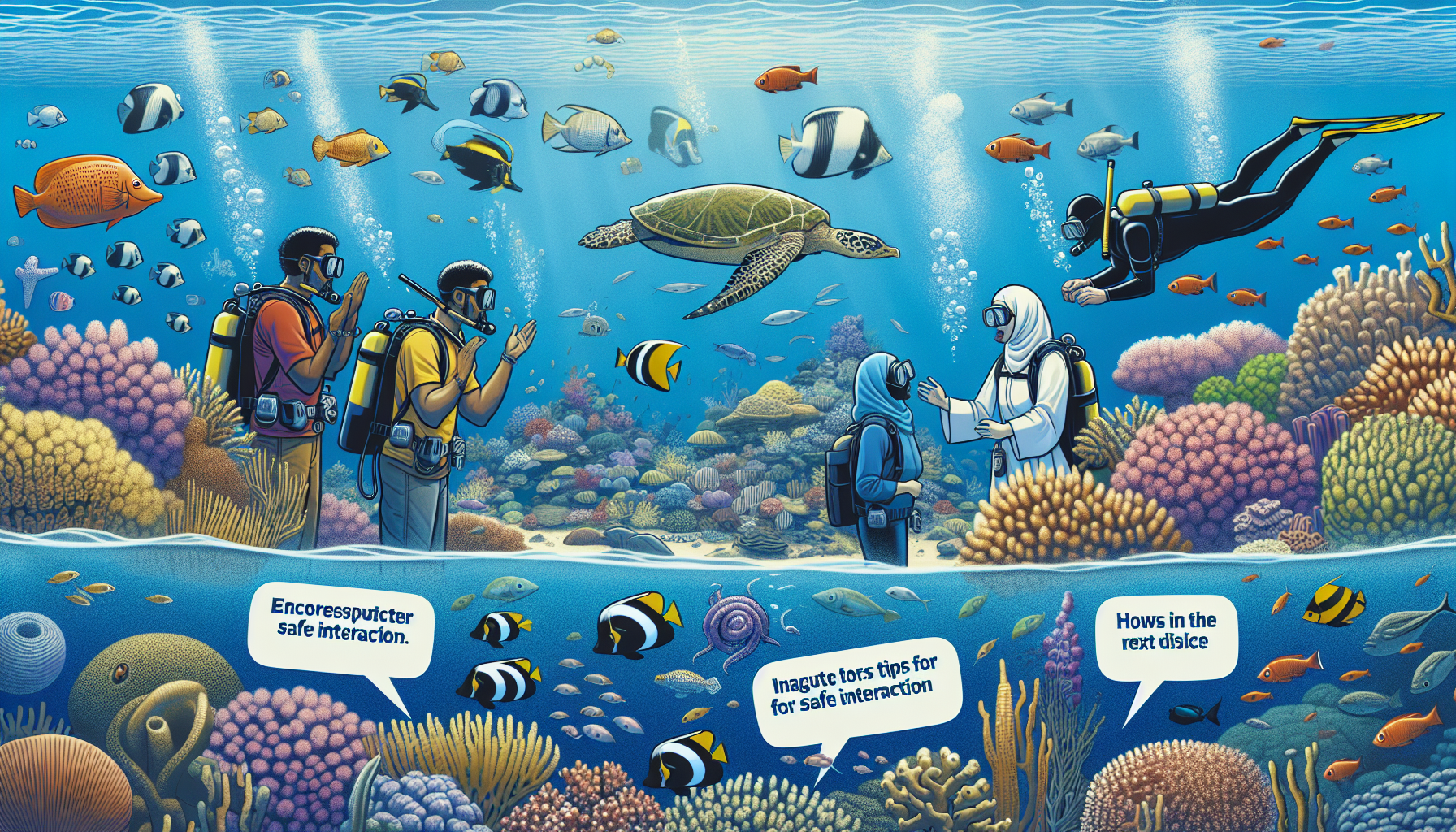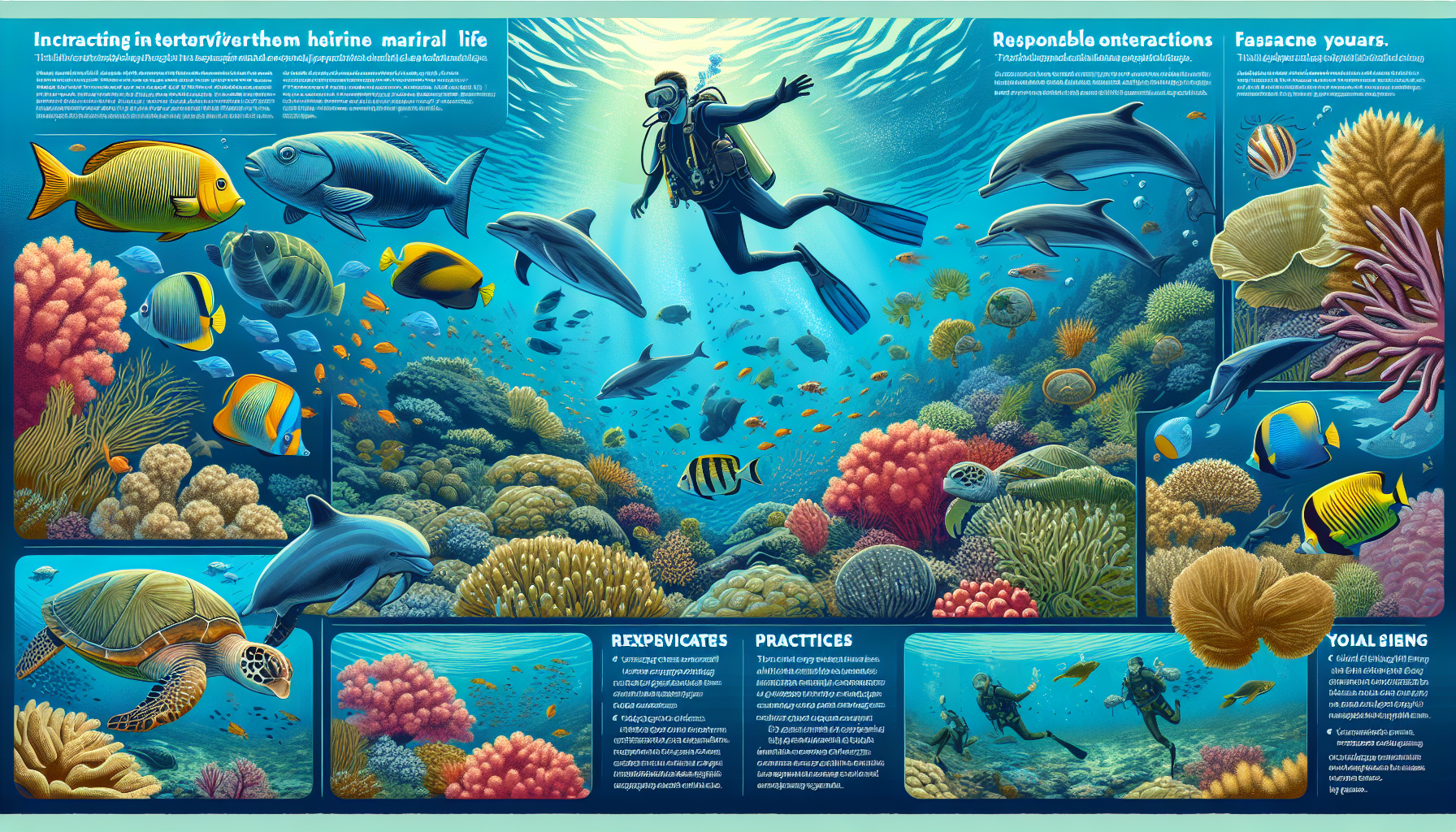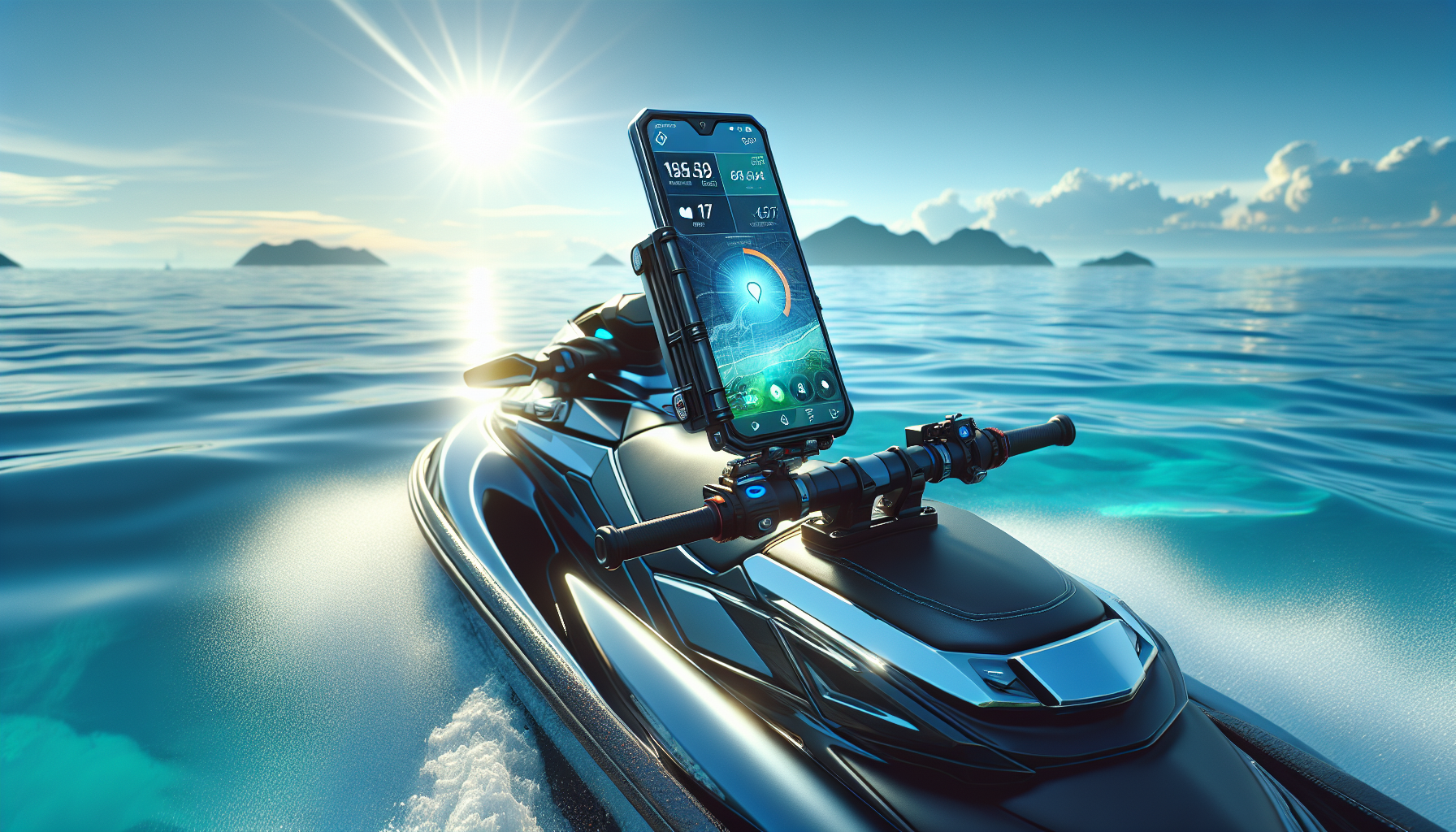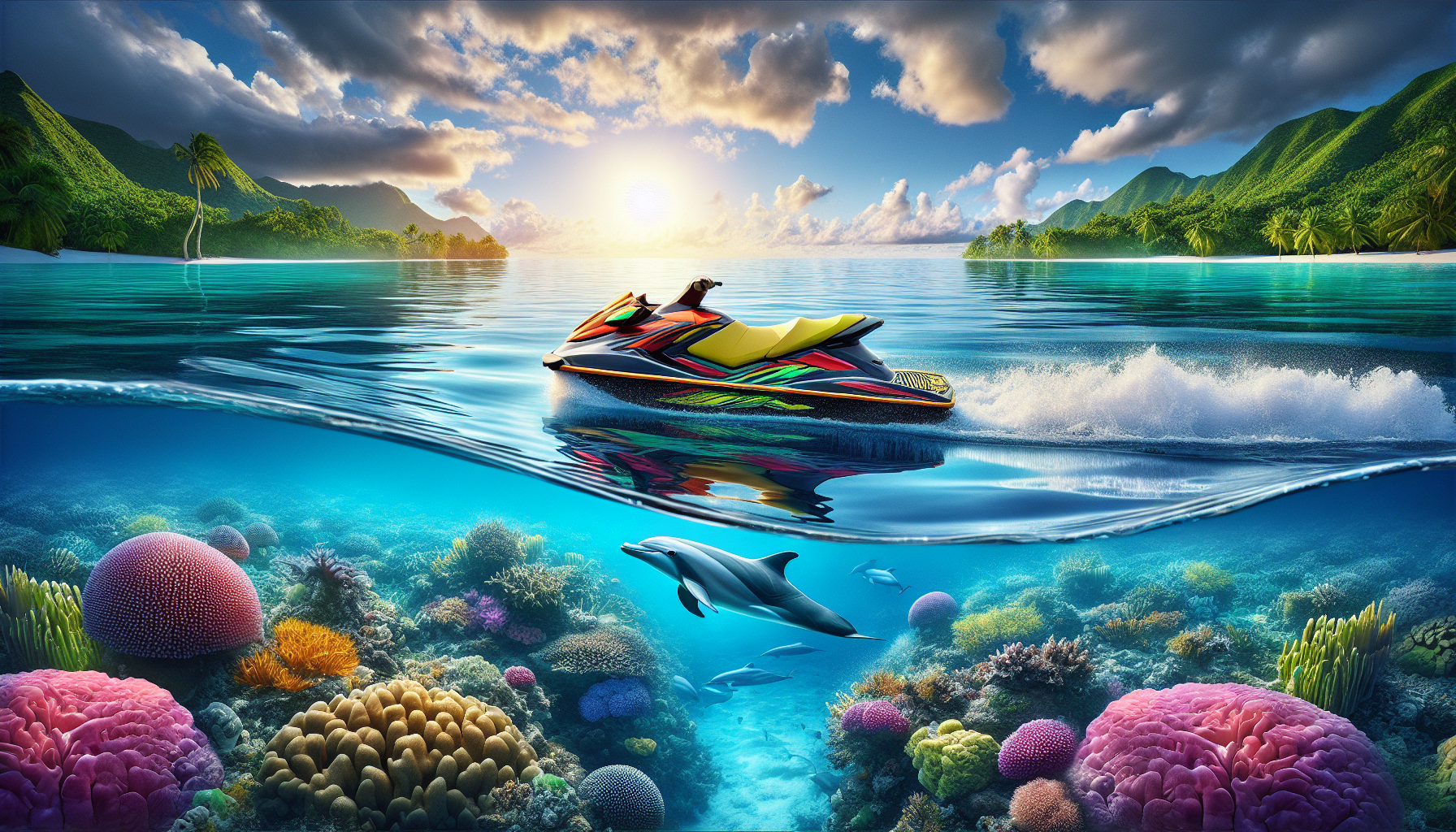Tips for Safe Interactions with Marine Life
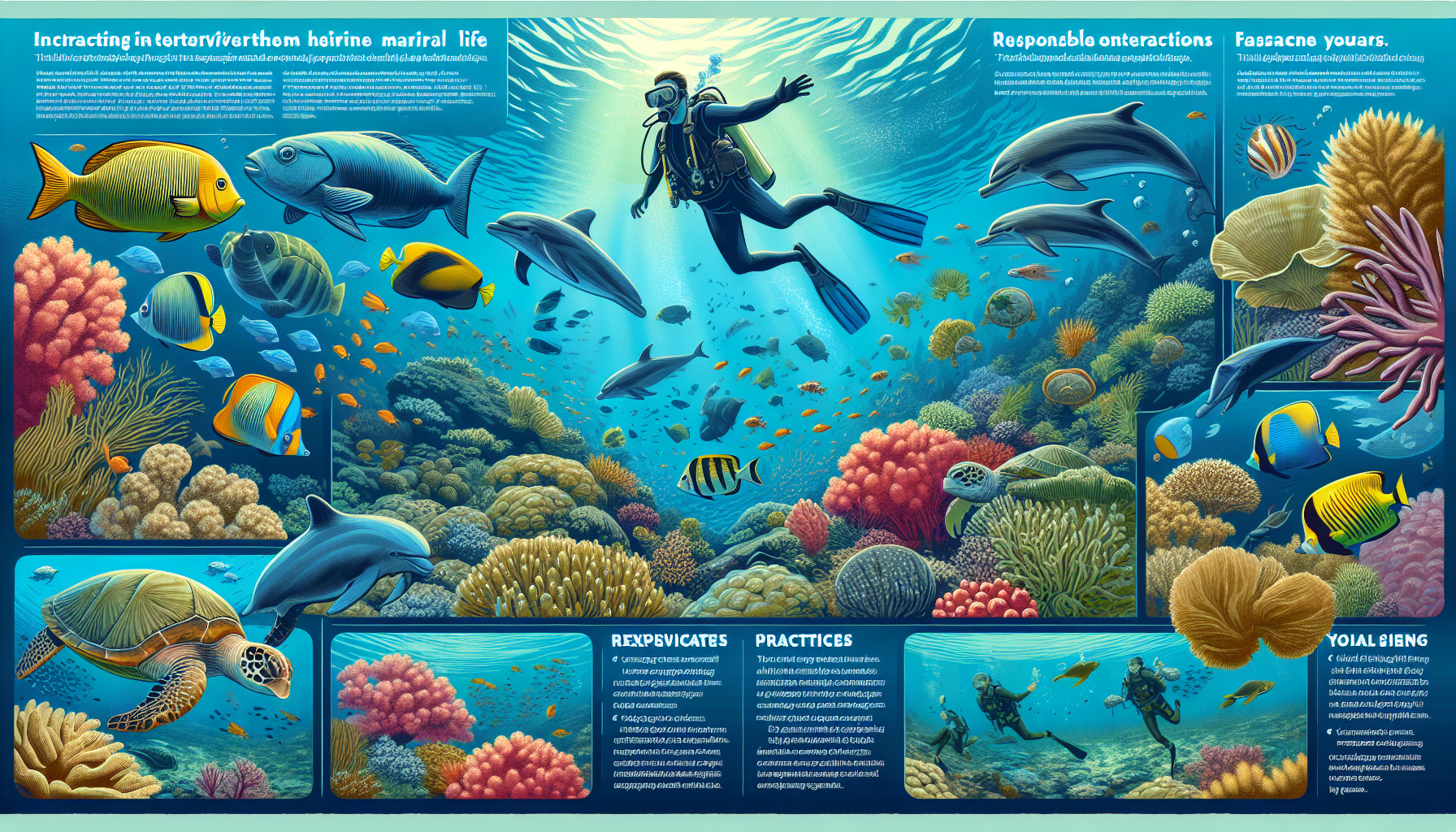
Are you an avid jet skier who loves spending time on the water and enjoying the thrill of riding the waves? If so, it’s important to also remember to be mindful of the marine life that surrounds you. Interacting with marine life can be a magical experience, but it’s crucial to do so in a safe and responsible manner. In this article, we’ll share some tips on how to have safe interactions with marine life while jet skiing. Whether you encounter dolphins, sea turtles, or other fascinating creatures, these tips will help ensure that both you and the marine life are protected. So before you hit the water, take a moment to brush up on these guidelines, provided to you by the watersport experts at A2Z Powersport located in Orange Beach, AL.
Tips for Safe Interactions with Marine Life
When it comes to exploring the wonders of the ocean, encountering marine life can be a truly magical experience. However, it’s important to approach these interactions with caution and respect for the safety of both yourself and the creatures that call the sea their home. This article aims to provide you with some valuable tips for safe interactions with marine life, ensuring that you can enjoy these encounters while preserving the well-being of the animals and their habitats.
Understanding Marine Life Behavior
Before venturing into the ocean, it’s crucial to have a basic understanding of marine life behavior. Different species may exhibit varying behaviors, and being knowledgeable about these behaviors can help you anticipate their reactions and act accordingly. For example, some marine animals may become more aggressive during mating or nesting seasons, while others may exhibit territorial behavior. By familiarizing yourself with the behavior patterns of the marine life you are likely to encounter, you can better prepare yourself for safe interactions.
Respecting their Natural Habitat
Respecting the natural habitat of marine life is essential for their well-being and the sustainability of their ecosystems. Avoid damaging or disturbing coral reefs, seagrass beds, or other fragile habitats by ensuring you do not touch or step on them. Be mindful of your surroundings and avoid littering or polluting the oceanic environment. Remember, you are a visitor to their world, and preserving it for future generations should be a top priority.
Keeping a Safe Distance
Maintaining a safe distance from marine life is vital for both their protection and your safety. Many marine animals have natural defense mechanisms and may react negatively if they feel threatened or intruded upon. It is recommended to keep a minimum distance of 50 to 100 feet from larger marine animals, such as whales or dolphins, and at least 15 feet from smaller creatures, like seals or sea lions. By observing from a distance, you can still appreciate their beauty without causing any harm.
Learning about Local Laws and Regulations
Every marine environment has its own set of laws and regulations in place to protect the animals and their habitats. It is essential to familiarize yourself with these local laws before engaging in any activities that involve marine life. These regulations may include restrictions on touching or feeding the animals, specific guidelines for boats and watercraft, or designated protected areas. By following these rules, you can ensure both the well-being of marine life and avoid legal repercussions.
Knowing the Signs of Aggression
While most marine animals are generally peaceful and docile, it’s important to be aware of signs of aggression or distress. If a marine animal appears agitated, displays rapid or erratic movements, or makes direct contact with you or your equipment, it could be a sign that it feels threatened. In such cases, it’s important to slowly and calmly retreat, giving the animal space and preventing any potentially dangerous situations. Don’t engage in behaviors that could provoke aggression, such as teasing or chasing marine life.
Avoiding Feeding or Touching Marine Animals
Feeding or touching marine animals may seem like a harmless way to interact, but it can have significant negative consequences. Feeding marine animals can disrupt their natural feeding behaviors and may lead to dependence on humans for food, which can be detrimental to their survival. Additionally, feeding or touching marine animals can cause them stress and discomfort, especially if they are not accustomed to human contact. Enjoy observing them from a respectful distance, allowing them to go about their natural behaviors undisturbed.
Protecting Yourself from Harmful Marine Life
While many marine animals are harmless, some can pose a threat to human safety. It’s important to educate yourself about potentially harmful marine life in the area you plan to visit. Some examples include jellyfish, certain species of sharks, or venomous creatures like stonefish. Understanding their habitats, behaviors, and what precautions to take can help you avoid negative interactions. Be cautious when swimming or snorkeling in unfamiliar waters and consider wearing protective gear if necessary.
Being Aware of Scuba Diving and Snorkeling Etiquette
Scuba diving and snorkeling are popular activities for exploring the underwater world and encountering marine life up close. However, it’s crucial to practice proper etiquette to ensure safe interactions for both yourself and the animals. Respect the coral reefs and refrain from touching or stepping on them. Avoid excessive noise and quick movements that may startle or disturb marine animals. Never chase or grab onto marine life, and keep your equipment and fins away from fragile marine organisms.
Using Responsible Boating Practices
If you are exploring the ocean by boat, it’s important to use responsible boating practices to minimize any negative impact on marine life. Slow down in areas known to be frequented by marine animals, as excessive speed can cause injuries or fatalities. Be cautious and vigilant to avoid collisions with marine animals, and always keep a lookout for their presence. Ensure proper waste disposal to prevent pollution and maintain the cleanliness of the marine environment.
Seeking Professional Guidance for Close Encounters
For those seeking close encounters with marine life, it is highly recommended to seek the guidance of trained professionals. Many tour operators or eco-tourism companies offer responsible and educational experiences that allow you to observe marine life up close while ensuring the animals’ safety. These professionals have extensive knowledge about marine life behavior, local regulations, and can provide valuable insights during your interactions.
In conclusion, safe interactions with marine life require knowledge, respect, and responsible behavior. By understanding marine life behavior, respecting their natural habitat, and maintaining a safe distance, you can enjoy the beauty of the ocean while preserving the well-being of marine animals. Familiarize yourself with local laws and regulations, know the signs of aggression, and avoid feeding or touching marine animals. Protect yourself from potentially harmful marine life, practice scuba diving and snorkeling etiquette, and use responsible boating practices. And remember, if you’re seeking close encounters, seek professional guidance to ensure a safe and educational experience. So go ahead and embark on your maritime adventure, but always prioritize the safety and welfare of marine life.


